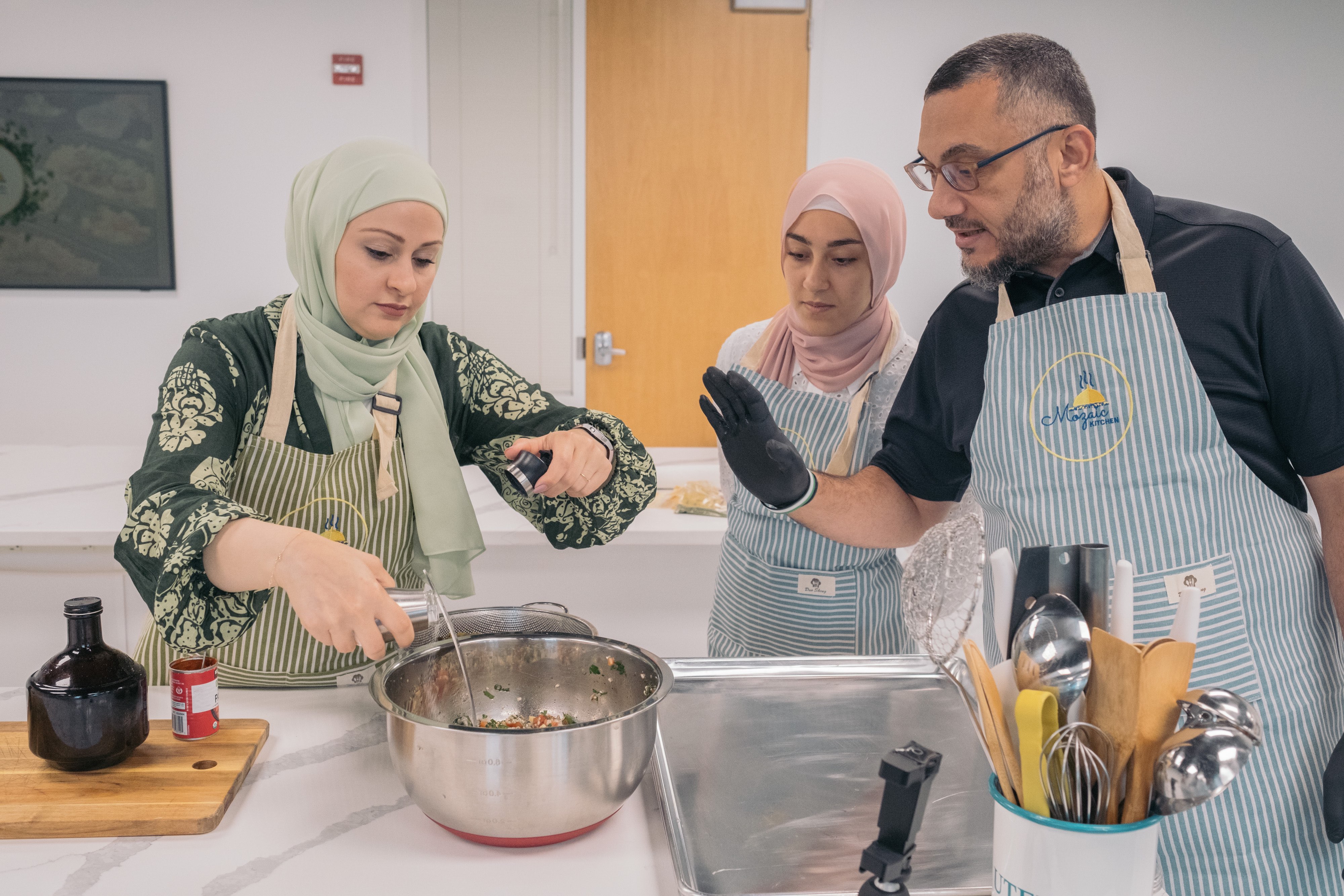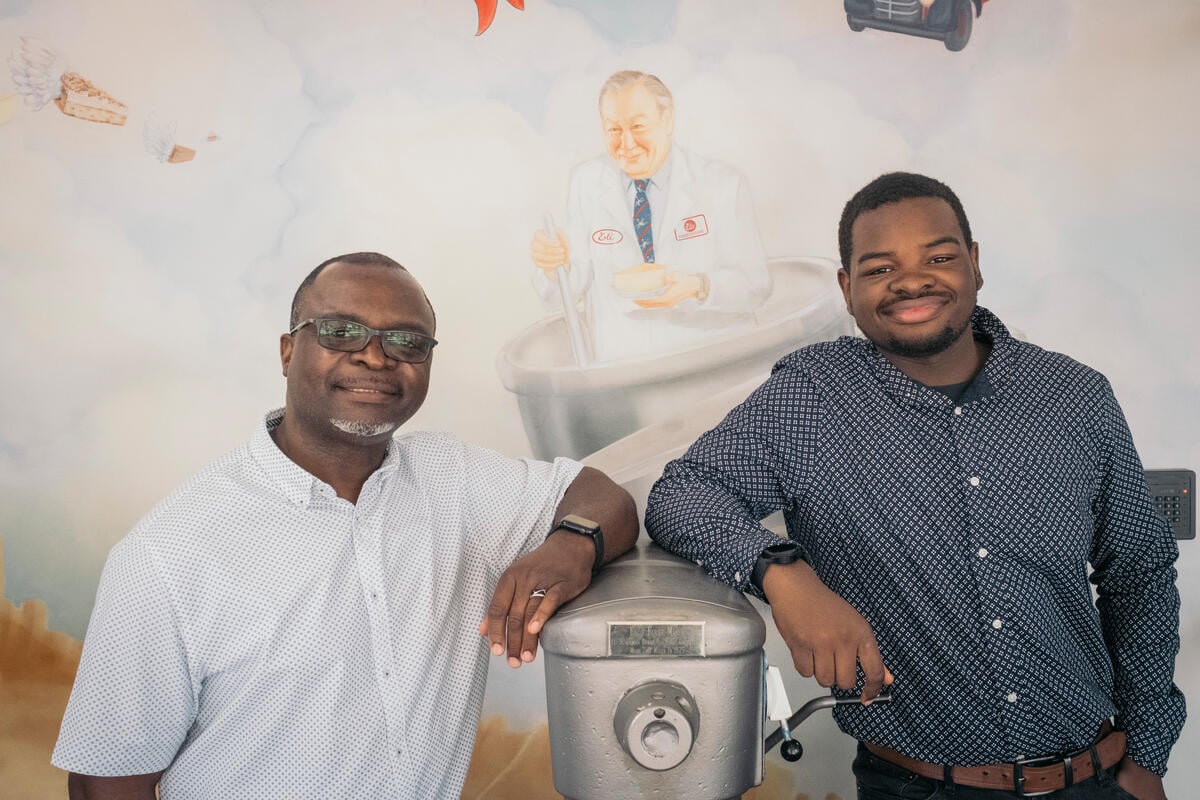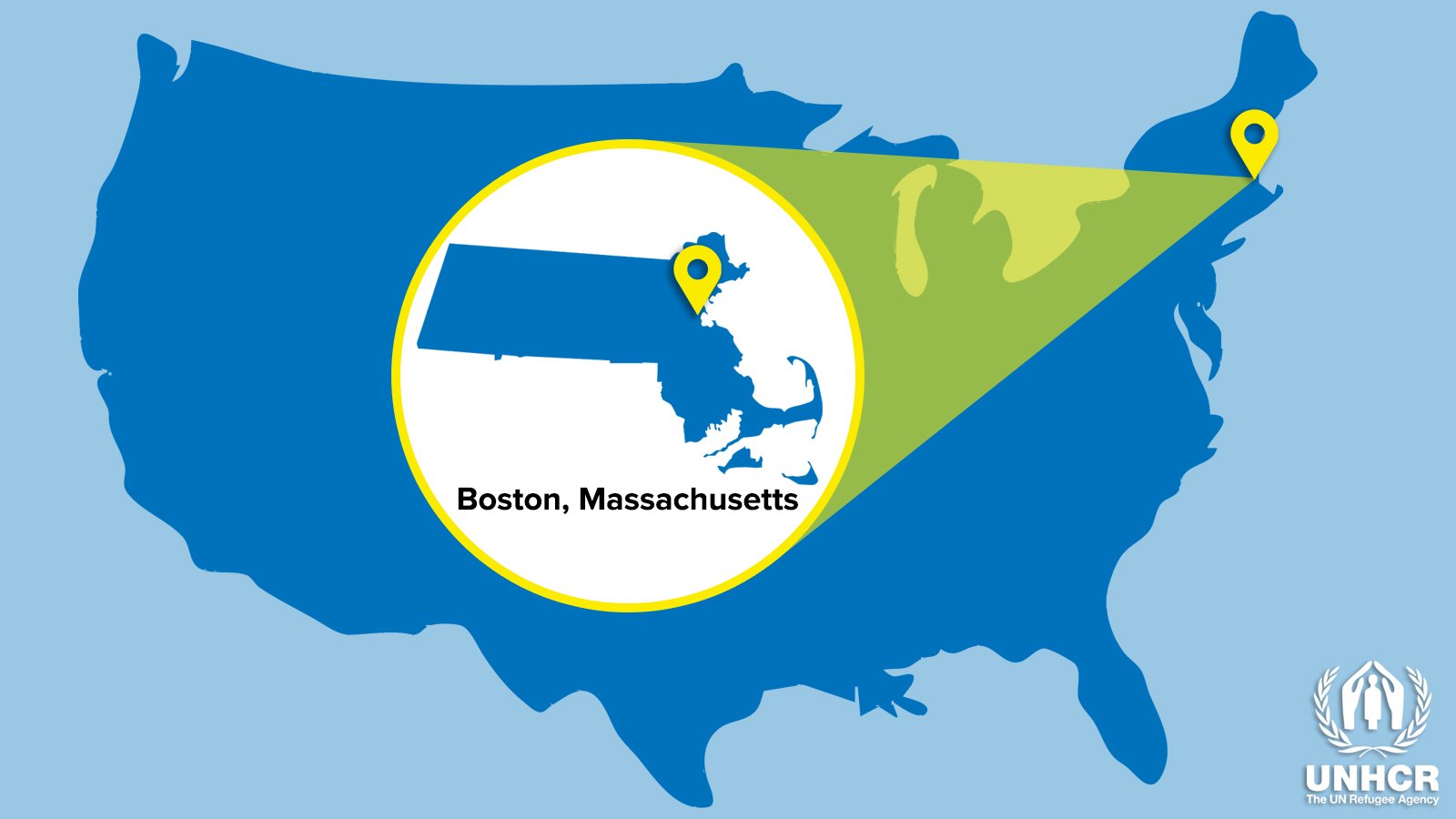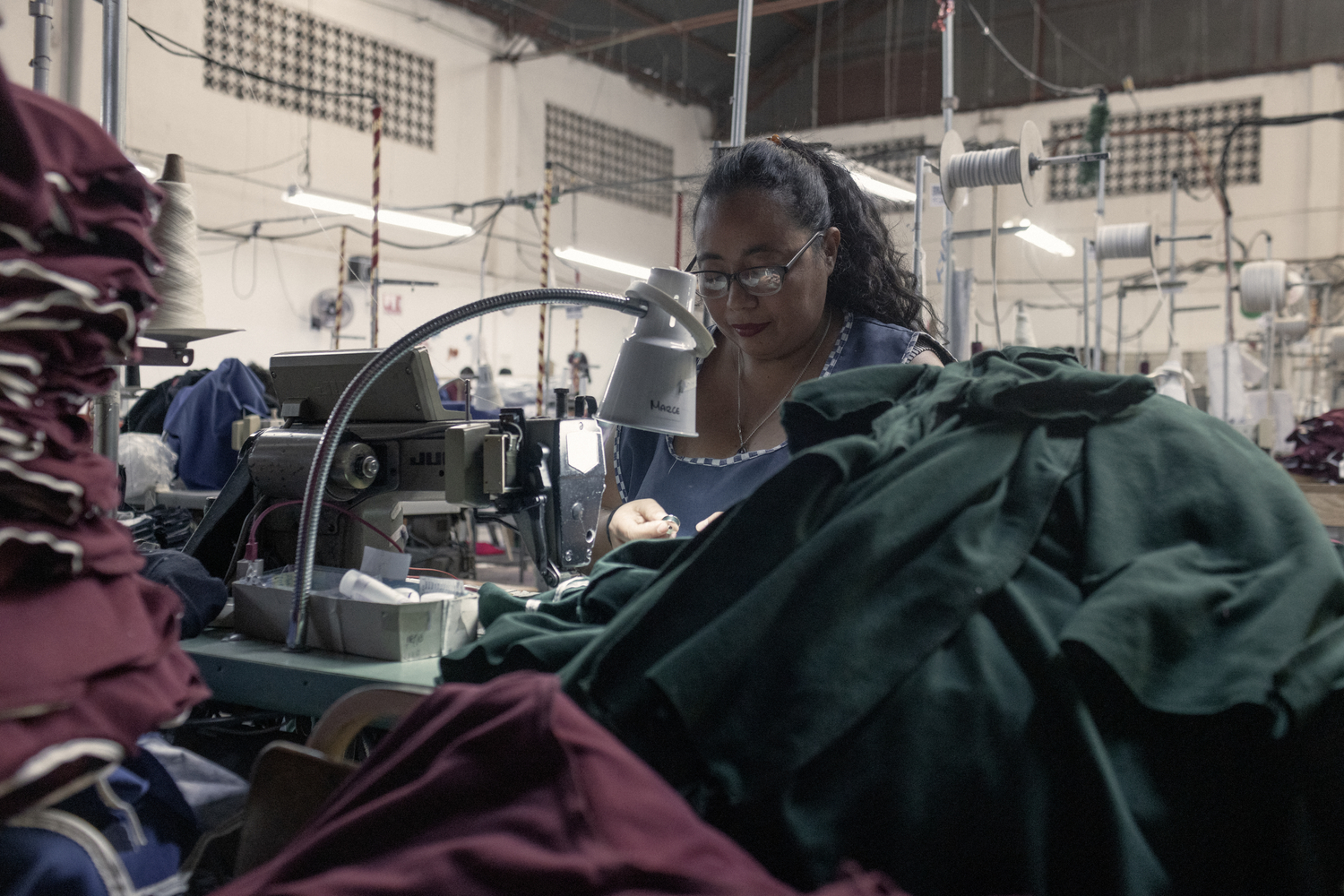Culinary training offers refugees in the Washington, D.C. area a recipe for hope
Culinary training offers refugees in the Washington, D.C. area a recipe for hope

Rami and his family prepare Syrian yalanji in the Mozaic Center kitchen.
Fleeing the conflict that has engulfed their home country of Syria, Rami and his family sought refuge in the U.S. state of Virginia. Their first days there in 2013 were a whirlwind of unfamiliarity.
"It was really stressful,” Rami reflects. “The moment we came here, you find out you have to live here, and you don't know anything. We adapted over time, but when you are in a place or situation where you don't know anyone, you still don't feel safe enough."

Rami and his family prepare Syrian yalanji in the Mozaic Center kitchen.
Navigating unfamiliar territory, including a new language and culture, was especially challenging for the family. "In the beginning, we had days where we gathered around a bowl of hummus and some cucumbers and tomatoes. The kids were like, 'When are we going to eat lunch?' And that was lunch," Rami recalls.
Their struggles and love of food served as a catalyst for the family to think of innovative ways to support their livelihood. After experimenting, some setbacks and a lot of perseverance, the family established Damascinos, a catering business that showcases authentic Syrian cuisine. Their mission is to celebrate and introduce the vibrant and unique flavors found in traditional dishes like ouzi, yalanji and kibbeh to the Washington, D.C. area.
The business really took off after being noticed by Mozaic, a non-profit organization dedicated to assisting refugees in culinary training, licensing and opportunities to cater events and earn an income. With Mozaic's guidance, Rami and his family embarked on their culinary journey, learning the ins and outs of running a food business in the United States. As Damascinos grew, Mozaic helped connect the business to a strong network of vendors, allowing Rami and his family to attract a diverse clientele both within and beyond their community.
The organization also supports chefs in managing the business aspects of their enterprises, such as handling bills, orders, invoices and taxes. In Mozaic’s spacious and well-equipped kitchen, the organization has so far trained 32 refugee chefs, with several launching their own catering businesses.
Raghad Bushnaq, the founder of Mozaic and an immigrant from Syria who came to the United States in 1989, understands intimately the struggles Rami’s family faced. She founded Mozaic after seeing the need for skills training for refugees who were arriving in the Washington, D.C. metropolitan area.

Authentic kibbeh and yalanji prepared by Damascinos in Mozaic’s kitchen
In addition to culinary training, Mozaic also addresses unique needs for recently arrived refugees, like English language learning, tutoring for children and assistance to meet basic daily needs. For the refugee community in the area, Mozaic’s programs are a lifeline.
“Refugees come and they feel like total strangers. They are starting from zero,” Raghad says. “It was not their choice to leave their countries – they were forced to leave their countries. They need to find someone who is welcoming them with warm hearts. Just finding someone treating them like family makes a huge difference.”
Mozaic's impact on the refugee community in the area is profound, allowing newcomers to settle into their new homes, rebuilding their lives in safety and feeling a sense of hope away from home.
“Just finding someone treating them like family makes a huge difference.”
"Resources are very important,” Rami says. “Information is the key to any success, and I believe Mozaic is doing a great job with this and I really thank them." For Rami, his family and countless others, Mozaic's efforts are a source of hope, empowerment and resilience in the face of adversity.

The founder and CEO of Mozaic, Raghad Bushnaq.
Through culinary skills, community support and a shared commitment to hard work, these refugees are transforming challenges into opportunities, forever changing the narrative of their lives in the United States.
“We live for hope, and that hope now fuels our energy,” Rami says.










